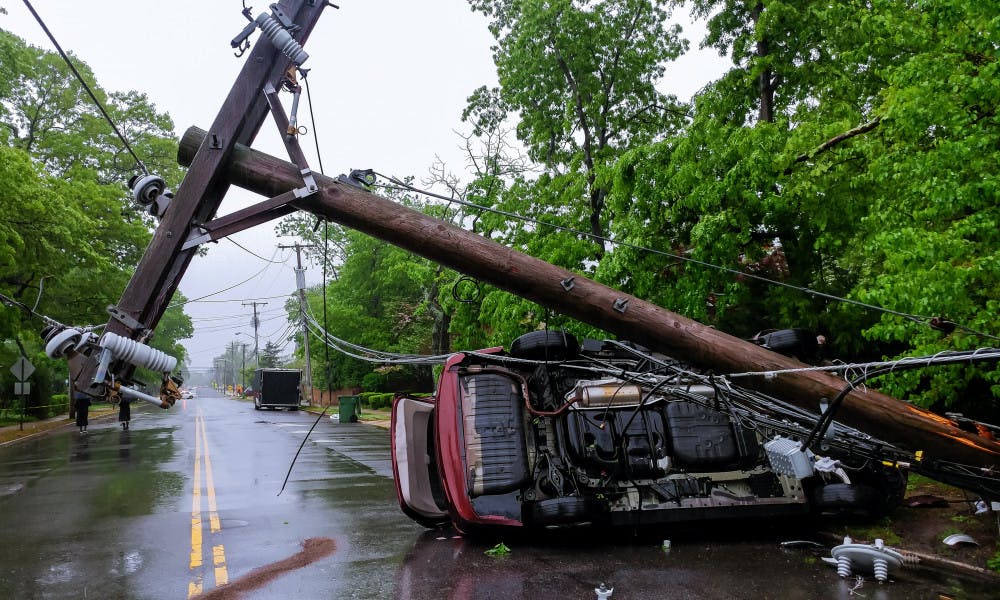By Jesse Stiller
Nation & World Editor
Armenia and Azerbaijan have agreed to a tentative ceasefire following a violent skirmish over the disputed territory of the landlocked region Nagorno-Karabakh, leading to fears of war between the two countries.
According to the BBC, a temporary ceasefire was agreed to by both countries during a 10-hour talk in Moscow. Russian Foreign Minister Sergey Lavrov told the BBC that the talks were “‘rather difficult’” as the Armenian government wanted the region to be internationally recognized as an independent state.
Azerbaijan’s foreign minister, Zohrab Mnatsakanyan, warned the ceasefire would only last “as long as it took for the ICRC (Red Cross) to arrange for bodies to be exchanged,” according to the BBC, as the deal would also allow prisoners to be swapped between the two countries.
Shortly after the deal had been negotiated, according to Al-Jazeera, both sides had accused the other of breaking the deal. The Armenian defense ministry accused Azerbaijan of continued shelling and accused Azeri forces of launching an offensive only five minutes after the ceasefire had been arranged.
The negotiated ceasefire, according to the Associated Press, was co-sponsored by the U.S. and France under the “Minsk Group” and its lack of progress had irritated Azerbaijan. The president of Azerbaijan, Ilham Aliyev, even went as far as to threaten to take the entire region by force, stating that international talks “‘haven’t yielded an inch of progress.’”
The U.S. Department of State released a joint statement on Oct. 5 in conjunction with the governments of the Russian Federation and the Republic of France condemning the actions on both sides and calling for a swift and peaceful end to the conflict.
The statement in part read, “The Ministers stress unconditionally that recent attacks allegedly targeting civilian centers — both along the Line of Contact and on the territories of Azerbaijan and Armenia outside the Nagorno-Karabakh conflict zone — and the disproportionate nature of such attacks constitute an unacceptable threat to the stability of the region.”
The most recent skirmishes, as part of a decades-long conflict between the two regions over control of the area, began on Sept. 27 and saw a sudden, unexpected flare-up in tensions. According to Reuters, this came from martial law and a total mobilization of the male population.
According to the BBC, the past week has seen Azerbaijan's second-most populous city, Ganja, shelled by Armenian forces repeatedly, which also led to a military airport and the nearby capital of Stepanakert being hit as well.
The BBC reported that at least 220 people had died since the skirmishes began and that the current fighting was the worst seen since the 1994 ceasefire over the area. Those that were on the ground feared the death toll among military and civilians was much higher than reported, but it is unknown if this is true.
Turkey had previously sought to get involved in the skirmishes in the area, according to Reuters, with President Tayyip Erdo?an stating that Ankara’s support was part of Turkey’s “quest for it’s ‘deserved place in world order.’” The move alarmed NATO allies and threatened to throw any chance of a ceasefire in doubt.
The Canadian Foreign Affairs minister, Francios-Phillipe Champagne, had a conversation with Turkish Foreign affairs minister Mevlut Cavusoglu, according to CBC News, telling them to not involve themselves in the situation, stating that it was “‘already a very complex situation.’”
“‘We deplore the loss of life and we need to make sure that no one is fuelling the conflict,’” Champagne said, according to CBC News. “‘Quite the opposite, the international community needs to be united in calling the parties back to the negotiating table, (to) respect the ceasefire and protect civilians.’’







